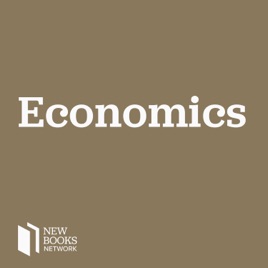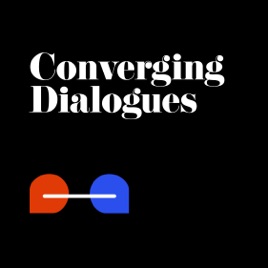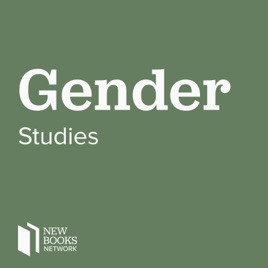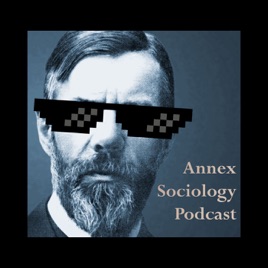
Advertise on podcast: New Books in Economics
Rating
4 from
Country
This podcast has
1168 episodes
Language
Publisher
Explicit
No
Date created
2011/03/09
Average duration
54 min.
Release period
2 days
Description
Interviews with Economists about their New Books Support our show by becoming a premium member! https://newbooksnetwork.supportingcast.fm/economics
Podcast episodes
Check latest episodes from New Books in Economics podcast
Yanis Varoufakis, "Technofeudalism: What Killed Capitalism" (Melville House, 2023)
2024/02/26
In Technofeudalism: What Killed Capitalism (Melville House, 2023), Yanis Varoufakis argues that capitalism is dead and a new economic era has begun.
Insane sums of money that were supposed to re-float our economies in the wake of the financial crisis and the pandemic have ended up supercharging big tech's hold over every aspect of the economy. Capitalism's twin pillars - markets and profit - have been replaced with big tech's platforms and rents. Meanwhile, with every click and scroll, we labour like serfs to increase its power. Welcome to technofeudalism.
Drawing on stories from Greek Myth and pop culture, from Homer to Mad Men, Varoufakis explains this revolutionary transformation: how it enslaves our minds, how it rewrites the rules of global power and ultimately what it will take overthrow it.
Louisa Hann attained a PhD in English and American studies from the University of Manchester in 2021, specialising in the political economy of HIV/AIDS theatres.
Learn more about your ad choices. Visit megaphone.fm/adchoices
Support our show by becoming a premium member! https://newbooksnetwork.supportingcast.fm/economics
more
Calla Hummel, "Why Informal Workers Organize: Contentious Politics, Enforcement, and the State" (Oxford UP, 2022)
2024/02/25
Informal workers make up over two billion workers or about 50 percent of the global workforce, and yet scholarly understandings of informal workers’ political and civil society participation remain limited. In Why Informal Workers Organize? Contentious Politics, Enforcement, and the State (Oxford University Press, 2022), Calla Hummel finds that informal workers organize in nearly every country for which data exists, but to varying degrees. Why do informal workers organize in some places more than others? Hummel finds that informal workers organize where state officials encourage them to. Grounded in robust theory that builds on and advances canon literature on collective action problems, Hummel argues that when officials intervene with incentives in the form of cash, licenses, and access to the bureaucracy, they lower the barriers that keep people from organizing on their own. Once informal workers take these incentives and start organizations, officials can bargain over regulation and enforcement with representatives instead of a mass of individuals. These insights are supported by well-triangulated data, including existing and original surveys, over 150 interviews with informal workers in Bolivia and Brazil, and ethnographic evidence collected from multiple cities. The book challenges assumptions about informal workers, offering an original contribution for scholars of informal economies, enforcement, civil society, and state building, as well as public policy practitioners.
Dhouha Djerbi is a PhD candidate in political science at the Geneva Graduate Institute.
Learn more about your ad choices. Visit megaphone.fm/adchoices
Support our show by becoming a premium member! https://newbooksnetwork.supportingcast.fm/economics
more
Jacob Ward, "Visions of a Digital Nation: Market and Monopoly in British Telecommunications" (MIT Press, 2024)
2024/02/23
In Visions of a Digital Nation: Market and Monopoly in British Telecommunications (MIT Press, 2024), Jacob Ward explains why the privatization of British Telecom signaled a pivotal moment in the rise of neoliberalism, and how it was shaped by the longer development and digitalization of Britain’s telecommunications infrastructure.
When Margaret Thatcher sold British Telecom for £3.6 billion in 1984, it became not only, at the time, the largest stock flotation in history, but also a watershed moment in the rise of neoliberalism and deregulation. In Visions of a Digital Nation, Ward offers an incisive interdisciplinary perspective on how technology prefigured this pivot. Giving due consideration to the politicians, engineers, and managers who paved the way for this historic moment, Ward illustrates how the decision validated the privatization of public utilities and tied digital technology to free market rationales. In this examination of the national and, at times, global history of technology, Ward’s approach is sweeping. Utilizing infrastructure studies, environmental history, and urban and local history, Ward explores Britain’s nationalist and welfarist plans for a digital information utility and shows how these projects contested and adapted to the “market turn” under Margaret Thatcher. Ultimately, Visions of a Digital Nation compellingly argues that politicians did not impose neoliberalism top-down, but that technology, engineers, and managers shaped these politics from the bottom up.
Jacob Ward is Assistant Professor in the History Department and Science, Technology and Society Studies Research Program at the Faculty of Arts and Social Sciences at Maastricht University. He is coeditor of Histories of Technology, the Environment and Modern Britain.
Filippo De Chirico is a PhD student in History and Politics of Energy at Roma Tre University (Italy).
Learn more about your ad choices. Visit megaphone.fm/adchoices
Support our show by becoming a premium member! https://newbooksnetwork.supportingcast.fm/economics
more
Look Again: The Power of Noticing What Was Always There
2024/02/22
Today’s book is: Look Again: The Power of Noticing What Was Always There (Atria/One Signal Publishers, 2024), by Tali Sharot and Cass R. Sunstein, a book that asks why stimulating jobs and breathtaking works of art lose their sparkle after a while. People stop noticing what is most wonderful in their own lives. They also stop noticing what is terrible, due to something called habituation. Because of habituation, people get used to dirty air, become unconcerned by their own misconduct, and become more liable to believe misinformation. But what if you could dishabituate? Could you find a way to see everything anew? What if you could regain sensitivity, not only to the great things in your life, but also to the terrible things you stopped noticing and so don’t try to change?
In Look Again, neuroscience professor Tali Sharot and Harvard law professor Cass R. Sunstein investigate why we stop noticing both the great and not-so-great things around us and how to “dishabituate.” This groundbreaking work, based on decades of research in the psychological and biological sciences, illuminates how we can reignite the sparks of joy, innovate, and recognize where improvements urgently need to be made. The key to this disruption—to seeing, feeling, and noticing again—is change. By temporarily changing your environment, changing the rules, changing the people you interact with—or even just stepping back and imagining change—you regain sensitivity, allowing you to more clearly identify the bad and more deeply appreciate the good.
Our guest is: Cass R. Sunstein, who is the nation’s most-cited legal scholar. For the past fifteen years, he has been at the forefront of behavioral economics. From 2009 to 2012, he served as the administrator of the White House Office of Information and Regulatory Affairs. Since that time, he has served in the US government in multiple capacities and worked with the United Nations and the World Health Organization, where he chaired the Technical Advisory Group on Behavioral Insights and Sciences for Health during the COVID-19 pandemic. He is the Robert Walmsley University Professor at Harvard Law School. His book Nudge, coauthored with Richard Thaler, was a national bestseller. In 2018, he was the recipient of the Holberg Prize from the government of Norway, sometimes described as equivalent of the Nobel Prize for law and the humanities. He lives in Boston and Washington, DC, with his wife, children, and labrador retrievers. He is the co-author [along with Tali Sharot, who could not join us for this episode] of Look Again.
Our host is: Dr. Christina Gessler, who is the creator of the Academic Life podcast. She holds a PhD in history, which she uses to explore what stories we tell and what happens to those we never tell.
Welcome to Academic Life, the podcast for your academic journey—and beyond! Join us again to learn from more experts inside and outside the academy, and around the world. Missed any of the 200+ Academic Life episodes? You’ll find them all archived here.
Learn more about your ad choices. Visit megaphone.fm/adchoices
Support our show by becoming a premium member! https://newbooksnetwork.supportingcast.fm/economics
more
Katharina Pistor, "The Code of Capital: How the Law Creates Wealth and Inequality" (Princeton UP, 2019)
2024/02/22
"Most lawyers, most actors, most soldiers and sailors, most athletes, most doctors, and most diplomats feel a certain solidarity in the face of outsiders, and, in spite of other differences, they share fragments of a common ethic in their working life, and a kind of moral complicity."
– Stuart Hampshire, Justice is Conflict.
There are many more examples of professional solidarity, however fragmented and tentative, sharing the link of a common ethic that helps make systems, and the analysis of them, possible in the larger political economy. Writing from a law professor’s vantage point, Katharina Pistor, in her new book, The Code of Capital: How the Law Creates Wealth and Inequality (Princeton University Press, 2019) explains how even though law is a social good it has been harnessed as a private commodity over time that creates private wealth, and plays a significant role in the increasing disparity of financial outcomes.
As she points out in this interview, and her chapter ‘Masters of the Code’, it is ‘critical to have lawyers in the room’, and they clearly have the lead role in her well-researched and nuanced thesis centered on the decentralized institution of private law. Professor Pistor builds on Rudden’s ‘feudal calculus’ providing the long view of legal systems in maintaining and creating wealth and draws on historical analogies including the enclosure movements as she interweaves her analysis of capital asset creation with a broader critique of professional and institutional agency. Polanyi and Piketty figure into Pistor’s analysis among many others, as does the help of the state’s coercive backing as she draws on the breadth of her own governance research and analysis of the collapsed socialist regimes in the 1990s, and a research pivot toward western market economies following the 2008 Global Financial Crisis.
Professor Pistor is a comparative scholar with a keen interdisciplinary eye for the relationship between law, values, and markets, dovetailing larger concepts with detailed descriptions of the coding of ‘stocks, bonds, ideas, and even expectations—assets that exist only in law.’ All of which informs her inquiry into why some legal systems have been more accommodating to capital’s coding cravings and others less so, as she describes the process by which capital is created. She moves beyond legal realism’s less granular critiques, and as reviewers such as Samuel Moyn have suggested – this book ‘deserves to be the essential text of any movement today that concerns itself with law and political economy’.
Katharina Pistor is the Edwin B. Parker Professor of Comparative Law, and the Director of the Center on Global Legal Transformation at Columbia Law School.
Keith Krueger lectures at the SHU-UTS Business School in Shanghai.
Learn more about your ad choices. Visit megaphone.fm/adchoices
Support our show by becoming a premium member! https://newbooksnetwork.supportingcast.fm/economics
more
Neil Lee, "Innovation for the Masses: How to Share the Benefits of the High-Tech Economy" (U California Press, 2024)
2024/02/21
How can we build a more equal economy? In Innovation for the Masses: How to Share the Benefits of the High-Tech Economy (U California Press, 2024), Neil Lee, a Professor of Economic Geography at the London School of Economics, explores the question of how societies have fostered and supported innovation. The book challenges conventional assumptions that innovative economies must be unequal. Drawing on 4 detailed, and critical, case studies- Switzerland, Austria, Taiwan and Sweden, the book shows how Europe has good models of innovation; how the state matters; and how innovation and shared prosperity policies are mutually reinforcing. Accessible and clearly written, the book will be essential reading across social sciences and public policy, as well as anyone wanting a blueprint for equitable economic development,
Learn more about your ad choices. Visit megaphone.fm/adchoices
Support our show by becoming a premium member! https://newbooksnetwork.supportingcast.fm/economics
more
Lawrence Glickman, "Free Enterprise: An American History" (Yale UP, 2019)
2024/02/18
“Free enterprise” is an everyday phrase that connotes an American common sense. It appears everywhere from political speeches to pop culture. And it is so central to the idea of the United States that some even labeled Christopher Columbus and the Pilgrims free enterprisers. In his new book, Free Enterprise: An American History (Yale University Press, 2019), Lawrence Glickman analyses that phrase’s historical meaning and shows how it became common sense.
Glickman, a historian and the Stephen and Evalyn Milman Professor in American Studies at Cornell University, traces the phrase from its many 19th-century meanings, of which abolitionists wielded a dominant one (consider the word free), to its conservative reformulation in the 1920s and 30s. He shows how “free enterprise” became the rallying cry of the business community from the 1930s to the Powell Memo in the early 70s. This book is a whirlwind tour of a keyword that has had immense rhetorical power in modern American history and that scholars have yet to critically examine. Glickman’s book provides a compelling example of how historians can study the historical construction of common sense and is a welcome contribution to intellectual history, political history, and the history of capitalism.
Dexter Fergie is a PhD student of US and global history at Northwestern University. He is currently researching the 20th-century geopolitical history of information and communications networks. He can be reached by email at dexter.fergie@u.northwestern.edu or on Twitter @DexterFergie.
Learn more about your ad choices. Visit megaphone.fm/adchoices
Support our show by becoming a premium member! https://newbooksnetwork.supportingcast.fm/economics
more
Tobias Straumann, "1931: Debt, Crisis, and the Rise of Hitler" (Oxford UP, 2019)
2024/02/17
What can we learn from the financial crisis that brought Hitler to power? How did diplomatic deadlock fuel the rise of authoritarianism? Tobias Straumann shares vital insights with 1931: Debt, Crisis, and the Rise of Hitler (Oxford University Press, 2019). Through his fast-paced narrative, Straumann reveals how inflexible treaties created an inescapable debt trap that spawned Nazism. Caught between investor confidence and domestic political pressure, unrealistic agreements left decision makers little room for maneuver when crisis struck. 1931 reminds us of hard lessons relevant to designing resilient agreements today.
Tobias Straumann is a Senior Lecturer at the University of Zurich and teaches economic history both to historians and economists. His research interests span numerous contributions to contemporary European business, monetary, and financial history. 1931 is his fourth book.
Ryan Stackhouse is a historian of Europe specializing in modern Germany and political policing under dictatorship. His book exploring Gestapo enforcement practices toward different social groups is nearing completion under the working title A Discriminating Terror. He also cohosts the Third Reich History Podcast and can be reached at john.ryan.stackhouse@gmail.com or @Staxomatix.
Learn more about your ad choices. Visit megaphone.fm/adchoices
Support our show by becoming a premium member! https://newbooksnetwork.supportingcast.fm/economics
more
Hamza Hamouchene and Katie Sandwell, "Dismantling Green Colonialism: Energy and Climate Justice in the Arab Region" (Pluto Press, 2023)
2024/02/16
Just in Time - the urgent need for a just transition in the Arab region. The newly published book Dismantling Green Colonialism: Energy and Climate justice in the Arab Region (Pluto Press, 2023) edited by Hamza Hamouchene and Katie Sandwell questions the development of sustainable energy production in the middle eastern and north African region. Positioning itself as part of a wider discussion of just transition, it provides wonderful insight into the colonial and capitalist narratives used to legitimise projects coming from the Global North. Furthermore, it highlights the fact that there is a need to deconstruct environmental orientalism to tackle questions of power at a local, regional, and international level.
Hamza Hamouchene is a researcher, activist and the programme coordinator for Africa at the Transnational Institute, based in the UK. Originally from Algeria, he brings wide understanding of climate and social justice.
Sarah Vogelsanger is a master student at SOAS in "Environment, Politics, and Development" and passionate about feminist approaches to social justice and political ecology.
Learn more about your ad choices. Visit megaphone.fm/adchoices
Support our show by becoming a premium member! https://newbooksnetwork.supportingcast.fm/economics
more
Sarah El-Kazaz, "Politics in the Crevices: Urban Design and the Making of Property Markets in Cairo and Istanbul" (Duke UP, 2023)
2024/02/15
In Politics in the Crevices: Urban Design and the Making of Property Markets in Cairo and Istanbul (Duke UP, 2023), Sarah El-Kazaz takes readers into the world of urban planning and design practices in Istanbul and Cairo. In this transnational ethnography of neighborhoods undergoing contested rapid transformations, she reveals how the battle for housing has shifted away from traditional political arenas onto private crevices of the city. She outlines how multiple actors—from highly capitalized international NGOs and corporations to city dwellers, bureaucrats, and planning experts—use careful urban design to empower conflicting agendas, whether manipulating property markets to protect affordable housing or corner luxury real estate. El-Kazaz shows that such contemporary politicizations of urban design stem from unresolved struggles at the heart of messy transitions from the welfare state to neoliberalism, which have shifted the politics of redistribution from contested political arenas to design practices operating within market logics, ultimately relocating political struggles onto the city’s most intimate crevices. In so doing, she raises critical questions about the role of market reforms in redistributing resources and challenges readers to rethink neoliberalism and the fundamental ways it shapes cities and polities.
Sarah El-Kazaz is Associate Professor in the politics department at SOAS, University of London. Her research interests include: critical political economy, urbanism, infrastructure and digital politics, and her new book project investigates the politics of digital infrastructures by following “Cloud” technologies across the Global South. Her work appears in peer-reviewed journals including: Comparative Studies in Society and History, and City and Society. She previously taught at Oberlin College, and completed a PhD at Princeton University.
Lamis Abdelaaty is an associate professor of political science at the Maxwell School of Syracuse University. She is the author of Discrimination and Delegation: Explaining State Responses to Refugees (Oxford University Press, 2021). Email her comments at labdelaa@syr.edu
Learn more about your ad choices. Visit megaphone.fm/adchoices
Support our show by becoming a premium member! https://newbooksnetwork.supportingcast.fm/economics
more
Ryan Manucha, "Booze, Cigarettes, and Constitutional Dust-Ups: Canada's Quest for Interprovincial Free Trade" (McGill-Queen's UP, 2022)
2024/02/14
Today I talked to Ryan Manucha about his new book Booze, Cigarettes, and Constitutional Dust-Ups: Canada's Quest for Interprovincial Free Trade (McGill-Queen's UP, 2022).
In 2012, after Gerard Comeau had driven to Quebec to purchase cheaper beer and crossed back into New Brunswick, police officers tailed and detained him, confiscated his haul, and levied a fine. With Comeau's story as his starting point, Ryan Manucha tells the fascinating tale of Canadian interprovincial trade. Interprovincial trade barriers and other frictions bring much-needed revenue into the coffers of provincial governments, which then can direct these funds toward various social services, but hinder the mobility of professionals, account for the different building codes imposed by Canadian provinces, and generally increase the price tag for Canadian consumers. In a candid interview, Ryan explains his interest in this topic, the backbone of his book's argument, and his efforts to make change workable.
Learn more about your ad choices. Visit megaphone.fm/adchoices
Support our show by becoming a premium member! https://newbooksnetwork.supportingcast.fm/economics
more
"War is what you make of it" with Neta Crawford of Oxford University and the Costs of War Project
2024/02/13
We begin this new season of International Horizons with an interview by RBI Director John Torpey with Neta Crawford from Oxford University and the Cost of War Project. Prof. Crawford argues that conflict is less lethal than in the past, although the overall costs of war exceed the duration of previous wars in many dimensions. The conversation delves into the possibilities of a conflict with China and Crawford's concern that the U.S's overreaction to the Chinese challenge could be extremely perilous. That said, misperceptions and misconceptions of the so-called "China threat" can be mitigated through diplomatic exchanges. Finally, Professor Crawford discusses the costs of the ongoing conflict in the Middle East, arguing that war has both domestic and external causes and consequences – a point that needs to be better understood when we think about war today.
International Horizons is a podcast of the Ralph Bunche Institute for International Studies that brings scholarly expertise to bear on our understanding of international issues. John Torpey, the host of the podcast and director of the Ralph Bunche Institute, holds conversations with prominent scholars and figures in state-of-the-art international issues in our weekly episodes.
Learn more about your ad choices. Visit megaphone.fm/adchoices
Support our show by becoming a premium member! https://newbooksnetwork.supportingcast.fm/economics
more
Podcast reviews
Read New Books in Economics podcast reviews
HipHopRapture
2020/09/21
The amount of content is where this pod shines
Every episode brings a guest discussing their latest paper or book. While there‘s the occasional topic I don’t find interesting, there’s enough qualit...
more
Ochtapas
2023/10/21
Used to be rigorous
This used to be more about presenting research and new theories, and more rigorous. Now you’re getting episodes from organizations with the word “fre...
more
Peter Lorentzen, Economist
2022/12/27
Great show….
…aside from the episodes I host.
Writer single mom
2017/12/28
Usually interesting
I hope there will be more interviews by Andrea Bernardi. He is choosing interesting non-mainstream economists. Sound quality could be better, but I gu...
more
Johnjacobjingleheimer
2012/11/21
Brainwashed
The interviewer says he is a teacher at a university but clearly is not.
Podcast sponsorship advertising
Start advertising on New Books in Economics & sponsor relevant audience podcasts
You may also like these social sciences Podcasts

4.8
41
311
Converging Dialogues
Converging Dialogues

4.9
95
395
Behavioral Grooves Podcast
Kurt Nelson, PhD and Tim Houlihan

4.9
704
124
Consider Before Consuming
Fight the New Drug

5
14
82
Through Conversations
Alex Levy

4.4
45
1119
New Books in Gender
New Books Network

4.7
60
10
Annex Sociology Podcast
Unknown

5
15
69
3 Pie Squared - ABA Business Leaders
Stephen Smith

4.9
144
315
The Bulletproof Musician
Noa Kageyama

5
1
96
PRIO's Peace in a Pod
Peace Research Institute Oslo

4.7
175
77
Speaking of Racism
Speaking of Racism



